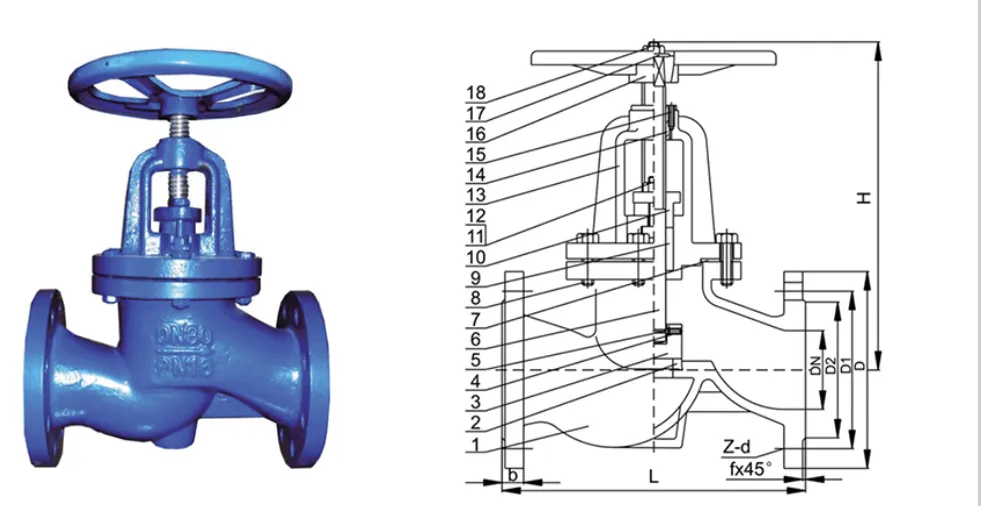10 月 . 18, 2024 22:16 Back to list
Exploring the Functionality and Design of Air Control Valves in Industrial Applications
The Importance of Air Valves in Modern Mechanical Systems
Air valves play a crucial role in the functioning of various mechanical systems, playing a part in everything from automotive engines to HVAC systems. Their primary purpose is to regulate airflow within a system, ensuring that pressure levels are maintained and that the proper amount of air is allowed to enter or exit specific components. Understanding the operation and significance of air valves can lead to enhanced efficiency, performance, and longevity in machinery.
What are Air Valves?
Air valves are mechanical devices designed to control the flow of air within a system. They can be operated manually, automatically, or using a combination of both methods. These valves can come in various shapes, sizes, and designs, depending on their application. Common types include solenoid valves, butterfly valves, and pneumatic valves, each suited for specific operational requirements.
Applications of Air Valves
The applications of air valves are extensive. In the automotive sector, air valves are used in engine systems to manage the air-fuel mixture required for optimal combustion. The efficiency of an engine can significantly hinge on the proper functioning of these valves, as they ensure that the correct amount of air enters the combustion chamber, influencing both power output and emissions.
In HVAC systems, air valves regulate the flow of air within heating and cooling ducts. They help maintain desired temperature levels in different rooms by adjusting the flow according to demand. By ensuring balanced airflow throughout a building, air valves contribute to energy efficiency, reducing the overall costs of heating and cooling while enhancing comfort.
In industrial settings, air valves are often integral to pneumatic systems
. These systems utilize compressed air to operate machinery and equipment. Air valves in these setups control the start, stop, and direction of airflow, directly impacting the performance of using tools and machinery. Their reliability is paramount, especially in environments where downtime can lead to significant productivity losses.air valve

The Mechanism of Air Valves
While the exact mechanics can vary depending on the type of air valve, the basic principle involves opening and closing passageways to control air flow. For example, in solenoid valves, an electromagnetic coil activates the valve mechanism, often leading to a rapid response that enables fluid control. In butterfly valves, a rotating disk controls the airflow, which can be adjusted to modulate air volume smoothly.
Advantages of High-Quality Air Valves
Investing in high-quality air valves can vastly improve the efficiency and reliability of a system. High-quality valves tend to have better seals, allowing for minimal air leakage. This not only enhances performance but also minimizes energy waste, making systems more sustainable. Additionally, premium materials used in well-constructed air valves can offer greater resistance to wear and corrosion, leading to longer service life and reduced maintenance costs.
Challenges and Maintenance
Despite their importance, air valves can face specific challenges, including wear and tear due to continuous operation. Contaminants in the air can also negatively impact their efficiency and accuracy. Regular maintenance is essential to prevent issues, which can include lubricating moving parts, replacing seals, and inspecting for blockages.
Conclusion
Air valves are indispensable components in modern mechanical systems, crucial for optimizing performance across a wide range of applications. Their ability to regulate airflow not only enhances the efficiency of systems but also contributes to energy savings and operational sustainability. As technology advances, the design and function of air valves continue to evolve, promising even greater reliability and performance in the future. Understanding and maintaining these valves is essential for anyone involved in mechanical system design, manufacturing, or maintenance, as their impact on system functionality cannot be understated. As industries prioritize efficiency and sustainability, the role of air valves will undoubtedly become even more significant, paving the way for innovations that push the boundaries of what is possible in engineering and technology.
Share
-
Understanding the Differences Between Wafer Type Butterfly Valve and Lugged Butterfly ValveNewsOct.25,2024
-
The Efficiency of Wafer Type Butterfly Valve and Lugged Butterfly ValveNewsOct.25,2024
-
The Ultimate Guide to Industrial Swing Check Valve: Performance, Installation, and MaintenanceNewsOct.25,2024
-
Superior Performance with Industrial Swing Check Valve: The Essential Valve for Any SystemNewsOct.25,2024
-
Industrial Swing Check Valve: The Ideal Solution for Flow ControlNewsOct.25,2024
-
You Need to Know About Industrial Swing Check Valve: Functionality, Scope, and PerformanceNewsOct.25,2024